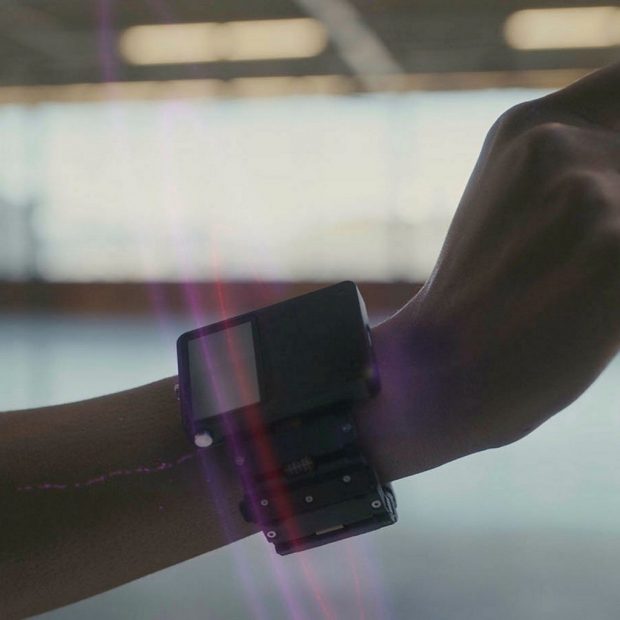AR Glasses and Armbands Will Control Computers with the Power of Thought
Your Link is Almost Ready Scroll Down After Loading...
The scene was unquestionably impressive: as early as 2002, the protagonist of the film Minority Report, portrayed by Tom Cruise, controlled the computer in his headquarters with the help of gestures and movements. What was a utopia back then is at least partially a reality today - even if the corresponding systems only work more or less well. Facebook now wants to venture in this direction as well and has presented a bracelet that translates motor brain signals into control signals for the movement of digital objects. The company goes one step further than Steven Spielberg in Minority Report: The commands from the brain to the hand are already intercepted at the nerves. In the future, the bracelet will be used in combination with augmented reality glasses from Facebook to control computers.
The device interprets nerve signals
The Facebook bracelet doesn't look very much. It's a bit like a first-gen iPod on a strap. The device then uses modern sensors to detect movements - even before they are executed. For this, the electrical activity of motor nerves is measured using electrocardiography (EMG) and then interpreted by the software. The system recognizes which motor commands are sent from the brain to the hand. The bracelet does not yet have a name. According to Facebook, it should be used to navigate through augmented reality menus. Without actually lifting a finger. It is enough just to think about the movement.
Augmented Reality describes the digital overlaying of the real world with information such as data, maps, or images. Probably the most prominent example in this direction is Pokémon Go, an AR game in which players went looking for digital Pokemon in the real world. However, many companies have difficulty using augmented reality successfully. Projects like Google Glass or Snap Spectacles quickly disappeared again into oblivion. However, Facebook assumes that they have created a better user experience with the bracelet and thus have more chances of success.
At the moment the bracelet is still being developed in the Facebook Reality Labs. A test in the real world is still pending. Likewise, neither a date for the market launch nor a price is known so far.
Facebook invests in augmented reality
It can be assumed that the development of the device goes back to the acquisition of the company CTRL-Labs by Facebook. Mark Zuckerberg's company paid a proud price of between 500 million and one billion US dollars for CTRL-Labs in September 2019. The main activity of the acquired company was the development of a wrist-based EMG device. The former head of CTRL-Labs, Thomas Reardon, now runs Facebook Reality Labs.
The introduction of the armband fits in with Facebook's other advances in the direction of augmented reality, which include AR glasses as well as AR gloves and other wearables.
As always with Facebook, the company's AR program will also come with the collection of personal data. Since a lot of information is processed in the context of AR, this line of business could turn out to be extremely lucrative for Facebook.
